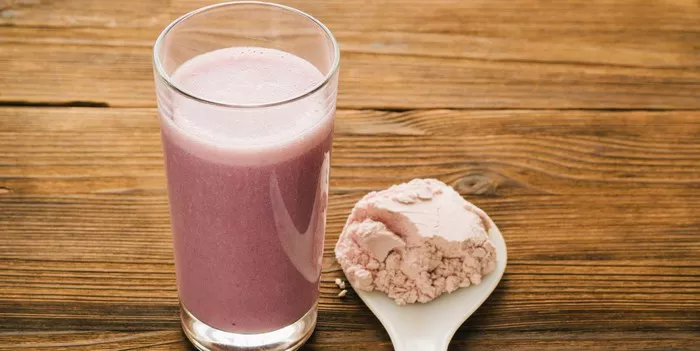Strength training is a cornerstone of fitness that improves muscle mass, strength, and overall health. However, the question of whether it is beneficial or harmful to engage in strength training daily is subject to ongoing debate. This comprehensive article will explore the implications of daily strength training, discussing potential benefits and risks, physiological impacts, and appropriate training regimes.
The Basics of Strength Training
Strength training, also known as resistance training, involves the use of resistance to induce muscular contraction which builds the strength, anaerobic endurance, and size of skeletal muscles. It commonly utilizes equipment like dumbbells, barbells, resistance bands, and machines that target specific muscle groups. The primary goal of strength training is to increase muscle mass and power, which in turn supports metabolic rate, bone density, and overall physical function.
Understanding Muscle Recovery
Muscle recovery is a critical aspect of strength training. When muscles are subjected to the stresses of strength training, microscopic tears occur in the muscle fibers. The repair process involves fusing muscle fibers together to form new muscle protein strands or myofibrils. These repaired myofibrils increase in thickness and number to create muscle hypertrophy (growth).
The recovery process requires time and resources, including nutrients from the diet, particularly proteins and their amino acids. Typically, muscles need about 24 to 48 hours to recover from a strenuous workout session, but this can vary based on the intensity of the workout, the specific muscles trained, the individual’s training history, age, and nutritional status.
Potential Risks of Daily Strength Training
While regular strength training is essential for developing muscle and improving overall health, daily strength training without proper rest can lead to several risks:
1. Overtraining Syndrome:
Engaging in intense daily strength training without adequate recovery can lead to overtraining syndrome. Symptoms include prolonged fatigue, decreased performance, mood disturbances, and increased risk of injuries. Overtraining not only hampers progress but can also cause severe physiological and psychological stress.
2. Increased Risk of Injury:
Without adequate rest and recovery, the constant stress on muscles, tendons, ligaments, and bones can increase the risk of injuries such as strains, sprains, and stress fractures. Overuse injuries are particularly common in those who engage in daily high-intensity strength training.
3. Hormonal Imbalance:
Excessive training with inadequate recovery can also lead to hormonal imbalances. For instance, chronic stress from overtraining can elevate cortisol levels, which in turn can inhibit testosterone production—a crucial hormone for muscle growth.
4. Mental Burnout:
The mental aspect of training is as important as the physical. Daily high-intensity training can lead to mental fatigue or burnout, which can decrease motivation and increase the risk of dropping out of an exercise program altogether.
Benefits of Adequate Recovery in Strength Training
Incorporating adequate recovery days into a strength training program can provide several benefits:
1. Improved Muscle Growth and Performance:
Recovery days allow for the muscle repair necessary for growth. Additionally, recovery helps maintain the quality and intensity of each workout, which is crucial for continuous improvement.
2. Reduced Injury Risk:
Recovery days help prevent overuse injuries by allowing the body time to heal and adapt to the stresses of training.
3. Hormonal Balance:
Adequate recovery helps maintain a healthy balance of anabolic (muscle-building) and catabolic (muscle-breaking) hormones, facilitating better overall physiological health.
Designing an Optimal Strength Training Program
To maximize the benefits of strength training while minimizing the risks, it is crucial to design an appropriately balanced program. Here are some key elements to consider:
1. Frequency:
For most individuals, training each muscle group 2-3 times per week is sufficient for optimal gains. This schedule allows for muscle recovery between sessions while still providing enough stimulus for muscle growth and strength improvements.
2. Intensity and Volume:
The intensity and volume of workouts should be tailored according to individual fitness levels, goals, and recovery capacity. Generally, a mix of heavier sessions with lighter, recovery-focused sessions can help maintain a balanced training regimen.
3. Progressive Overload:
To continue gaining strength and muscle over time, it is essential to gradually increase the resistance or intensity of workouts. This principle, known as progressive overload, ensures continued adaptation and improvement.
4. Variation:
Incorporating a variety of exercises, equipment, and training styles can help prevent boredom and overuse injuries. This might include alternating between fre weights, machines, and bodyweight exercises, or between high-intensity strength training and lighter, more endurance-focused workouts.
Conclusion
While strength training is an essential component of physical fitness, daily strength training without adequate recovery can lead to a range of negative outcomes, including increased injury risk, hormonal imbalances, and mental burnout. Designing a balanced strength training program that includes proper recovery periods is crucial for maximizing benefits and minimizing risks. Listening to your body and adjusting training frequency and intensity based on personal recovery capacity and fitness goals will help maintain a healthy and effective strength training regimen. Remember, more is not always better; smarter is better.
[inline_related_posts title=”You Might Be Interested In” title_align=”left” style=”list” number=”6″ align=”none” ids=”8411,8405,8336″ by=”categories” orderby=”rand” order=”DESC” hide_thumb=”no” thumb_right=”no” views=”no” date=”yes” grid_columns=”2″ post_type=”” tax=””]































